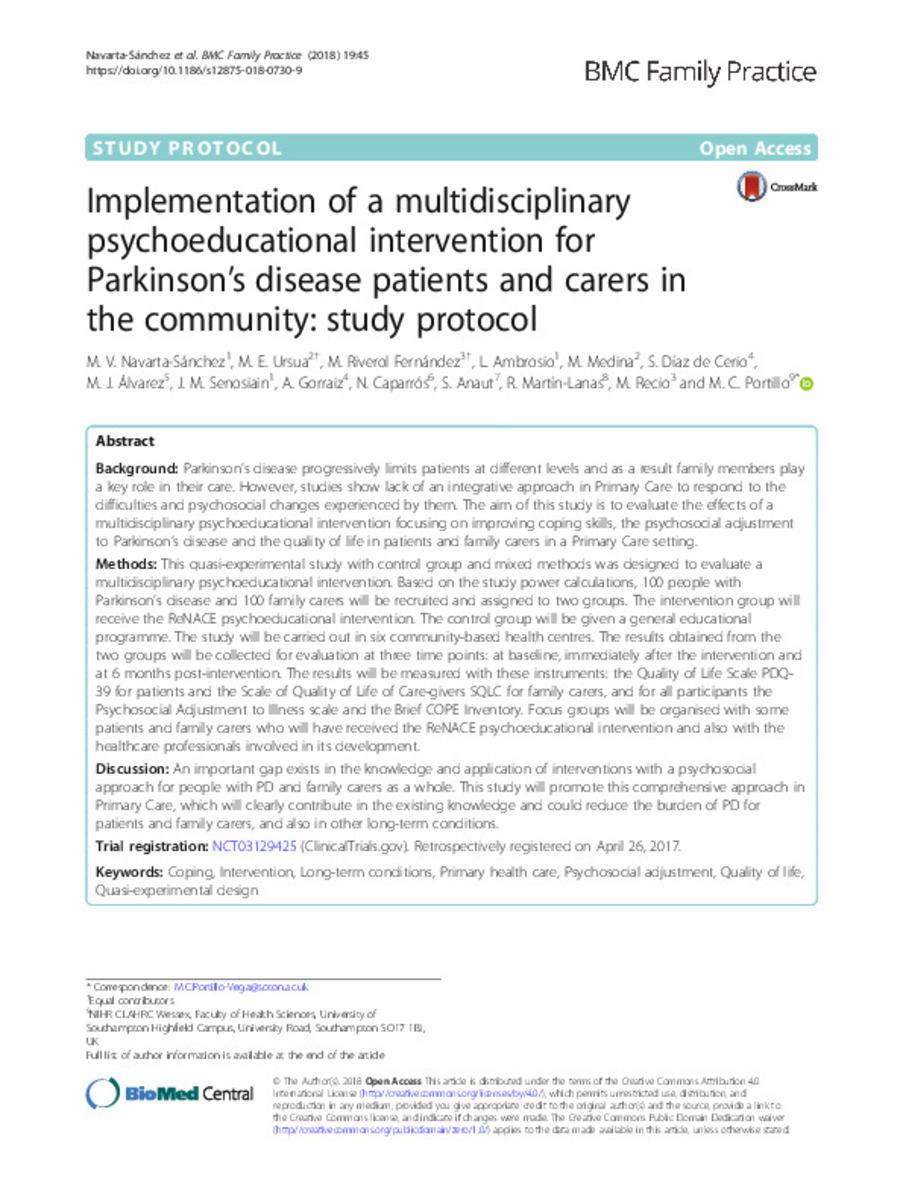Implementation of a multidisciplinary psychoeducational intervention for Parkinson's disease patients and carers in the community: study protocol
Keywords:
Coping
Intervention
Long-term conditions
Primary health care
Psychosocial adjustment
Quality of life
Quasi-experimental design
Note:
This article is distributed under the terms of the Creative Commons Attribution 4.0
International License (http://creativecommons.org/licenses/by/4.0/), which permits unrestricted use, distribution, and
reproduction in any medium, provided you give appropriate credit to the original author(s) and the source, provide a link to
the Creative Commons license, and indicate if changes were made. The Creative Commons Public Domain Dedication waiver
(http://creativecommons.org/publicdomain/zero/1.0/) applies to the data made available in this article, unless otherwise stated.
Citation:
Navarta-Sánchez, M. V. (Mª Victoria); Ursua-Sesma, M.E. (M. Eugenia); Riverol-Fernández, M. (M.); et al. "Implementation of a multidisciplinary psychoeducational intervention for Parkinson's disease patients and carers in the community: study protocol". Bmc family practice. 19 (45), 2018,
Statistics and impact
0 citas en

Items in Dadun are protected by copyright, with all rights reserved, unless otherwise indicated.










